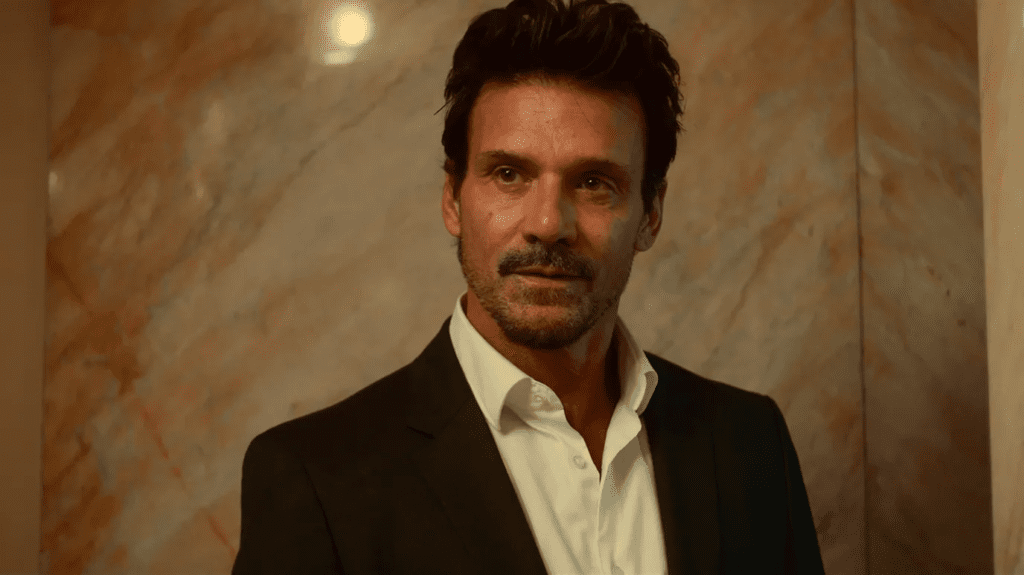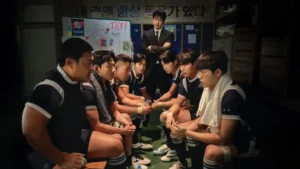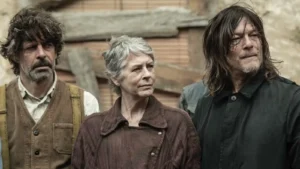Summary
Frank Grillo makes an always-reliable B-movie leading man, but Little Dixie makes his one-man-army crusade a little too easy for him and a lot too familiar for us.
Friend of the site Frank Grillo – he left a comment here once, and I’m never letting anyone forget it – is as reliable as it gets when it comes to a certain type of muscular B-movie, usually one about daddies and their daughters, a strain of action DNA that has been passed down through the various illegitimate offspring of Taken, the 2008 movie about Liam Neeson’s special skills that was never that good, to begin with.
Grillo isn’t Liam Neeson, which Little Dixie should thank him for. Neeson’s a great actor, of course, but he’s also 207 years old, which makes action scenes involving him difficult to film and edit around (may we never forget that bit in Taken 3 when it took about 17 cuts for him to clamber over a fence and face-plant in the dirt.) Grillo is a vampiric 57 with washboard abs and a granite jaw, so you can totally buy him as, say, an ex-Special Forces tough guy who, with a Glock 19 and a glower, could feasibly eradicate an entire Mexican drug cartel in an afternoon.
But this is part of the problem. Little Dixie is an action thriller from writer-director and frequent Grillo collaborator John Swab, who loves his lead so much that he forgets to remotely imperil him throughout the entire movie. The justification would be, I think, that this is also a deeply grim breed of thriller that is as much about the moral difficulties of action heroism as the physical challenges, but Grillo’s character, Doc, doesn’t seem particularly perturbed by those either.
The general idea is that Doc is a go-between, a liaison between his old Army buddy Governor Jeffs (Eric Dane) and the brutal Cartel that quietly funded his political campaign in exchange for certain favors that Jeffs, somewhat naively, knew nothing about. This is partly by design. He handed off all the moving and shaking to a dodgy political strategist named Billie (Annabeth Gish) and buried his head in the sand while she got him elected. But it’s also partly because of his own arrogance and ambition. After securing the execution of a Cartel trigger-man after he murdered three civilians, Jeffs goes on a public tough-on-crime victory lap, which the dead man’s brother, Lalo (Maurice Compte), understandably takes as a bit of an insult.
In retaliation, Lalo sends his psychopathic half-brother Cuco (Beau Knapp, wonderfully demented here) to deal with Jeffs. To do so, he kidnaps Doc’s daughter, Nell (Sofia Bryant), to strongarm Doc into killing Jeffs and providing grim proof of the murder. Doc agrees and finds everything that follows much easier than you’d think.
Little Dixie has a notably dour view of politics, crime, morality, military service, relationships, sexuality, and a bit more besides. It’s totally blasé about the link between American politics and backroom deals with Mexican crime; it posits that a story’s hero doesn’t have to act particularly heroically but instead in his own self-interest and spares little time for justifying its plot turns or ruminating on its themes. Doc, for instance, is scarred by his time overseas and worn down by a bitter ex-wife who is determined to keep him away from Nell, but barely any attention is given to the matter of U.S. veterans assimilating back into society or the perils of divorce court and custody agreements. Nell’s unswerving fondness for her father feels like a cheat code.
This is to focus on brutal forward momentum, especially once Little Dixie kicks into gear after the setup period and becomes exclusively about Doc double-tapping everyone in his vicinity. The action isn’t showy or overly choreographed, just simple, efficient, and clear. Sometimes we’re expected to believe guns are being fired when they clearly aren’t, which can give away some of the film’s cheapness, but it mostly looks the part, since Grillo does too and knows how to sell the material.
And yet it’s Knapp I find myself coming back to. His enforcer character will be written off by many as overacted, and I can see that, but I found his obvious psychopathy, unresolved trauma – stemming from being half-American, the bastard child of a white prostitute – and self-loathing to be quite compelling. There’s a sequence that purely exists to make a point of his being gay, which is unnecessary and draws an unfortunate parallel that I thought we’d have moved away from by now, but there’s something in the simmer of his performance all the same. He makes a good foil for Doc throughout much of the movie, but the climax doesn’t have the time or inclination to do anything worthwhile with the parallels that the rest of the screenplay established. The entire finale is similarly rushed and ultimately anticlimactic, leaving the audience wondering whether Doc’s crusade was worth the effort, for him or for us.




